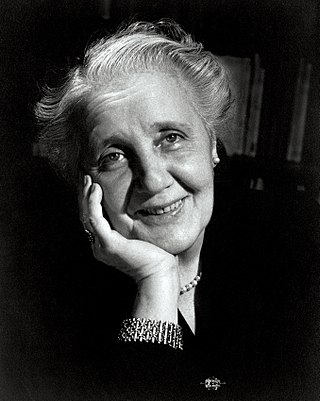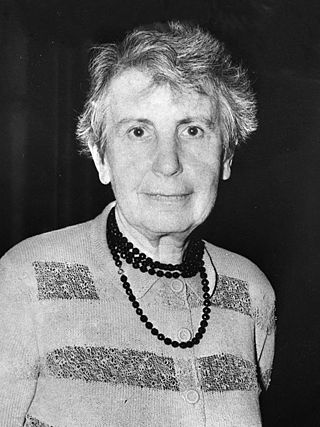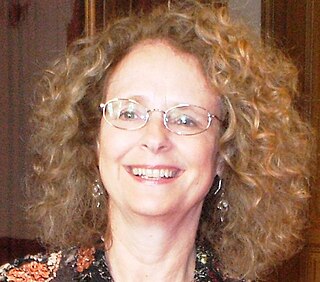Related Research Articles
Psychoanalysis is a set of theories and therapeutic techniques that deal in part with the unconscious mind, and which together form a method of treatment for mental disorders. The discipline was established in the early 1890s by Sigmund Freud, whose work stemmed partly from the clinical work of Josef Breuer and others. Freud developed and refined the theory and practice of psychoanalysis until his death in 1939. In an encyclopedic article, he identified the cornerstones of psychoanalysis as "the assumption that there are unconscious mental processes, the recognition of the theory of repression and resistance, the appreciation of the importance of sexuality and of the Oedipus complex." Freud's colleagues Alfred Adler and Carl Gustav Jung developed offshoots of psychoanalysis which they called individual psychology (Adler) and analytical psychology (Jung), although Freud himself wrote a number of criticisms of them and emphatically denied that they were forms of psychoanalysis. Psychoanalysis was later developed in different directions by neo-Freudian thinkers, such as Erich Fromm, Karen Horney, and Harry Stack Sullivan.

Sigmund Freud was an Austrian neurologist and the founder of psychoanalysis, a clinical method for evaluating and treating pathologies seen as originating from conflicts in the psyche, through dialogue between patient and psychoanalyst, and the distinctive theory of mind and human agency derived from it.

Alfred Ernest Jones was a Welsh neurologist and psychoanalyst. A lifelong friend and colleague of Sigmund Freud from their first meeting in 1908, he became his official biographer. Jones was the first English-speaking practitioner of psychoanalysis and became its leading exponent in the English-speaking world. As President of both the International Psychoanalytical Association and the British Psycho-Analytical Society in the 1920s and 1930s, Jones exercised a formative influence in the establishment of their organisations, institutions and publications.
Psychoanalytic theory is the theory of personality organization and the dynamics of personality development relating to the practice of psychoanalysis, a clinical method for treating psychopathology. First laid out by Sigmund Freud in the late 19th century, psychoanalytic theory has undergone many refinements since his work. The psychoanalytic theory came to full prominence in the last third of the twentieth century as part of the flow of critical discourse regarding psychological treatments after the 1960s, long after Freud's death in 1939. Freud had ceased his analysis of the brain and his physiological studies and shifted his focus to the study of the psyche, and on treatment using free association and the phenomena of transference. His study emphasized the recognition of childhood events that could influence the mental functioning of adults. His examination of the genetic and then the developmental aspects gave the psychoanalytic theory its characteristics.

Melanie Klein was an Austrian-British author and psychoanalyst known for her work in child analysis. She was the primary figure in the development of object relations theory. Klein suggested that pre-verbal existential anxiety in infancy catalyzed the formation of the unconscious, which resulted in the unconscious splitting of the world into good and bad idealizations. In her theory, how the child resolves that split depends on the constitution of the child and the character of nurturing the child experiences. The quality of resolution can inform the presence, absence, and/or type of distresses a person experiences later in life.

Anna Freud CBE was a British psychoanalyst of Austrian–Jewish descent. She was born in Vienna, the sixth and youngest child of Sigmund Freud and Martha Bernays. She followed the path of her father and contributed to the field of psychoanalysis. Alongside Hermine Hug-Hellmuth and Melanie Klein, she may be considered the founder of psychoanalytic child psychology.
The British Psychoanalytical Society was founded by Ernest Jones as the London Psychoanalytical Society on 30 October 1913. It is one of two organisations in Britain training psychoanalysts, the other being the British Psychoanalytic Association.
Nancy Julia Chodorow is an American sociologist and professor. She began her career as a professor of Women's Studies at Wellesley College in 1973, and from 1974 on taught at the University of California, Santa Cruz, until 1986. She then was a professor in the departments of Sociology and Clinical Psychology at the University of California, Berkeley until she resigned in 1986, after which she taught psychiatry at Harvard Medical School/Cambridge Health Alliance. Chodorow is often described as a leader in feminist thought, especially in the realms of psychoanalysis and psychology.
Heinz Hartmann, was an Austrian psychiatrist and psychoanalyst. He is considered one of the founders and principal representatives of ego psychology.

Jessica Benjamin is a psychoanalyst known for her contributions to psychoanalysis and social thought. She is currently a practicing psychoanalyst in New York City where she is on the faculty of the New York University Postdoctoral Psychology Program in Psychoanalysis and Psychotherapy, and the Stephen Mitchell Center for Relational Studies. Jessica Benjamin is one of the original contributors to the fields of relational psychoanalysis, theories of intersubjectivity, and gender studies and feminism as it relates to psychoanalysis and society. She is known for her ideas about recognition in both human development and the sociopolitical arena.

Susan Sutherland Isaacs, CBE was a Lancashire-born educational psychologist and psychoanalyst. She published studies on the intellectual and social development of children and promoted the nursery school movement. For Isaacs, the best way for children to learn was by developing their independence. She believed that the most effective way to achieve this was through play, and that the role of adults and early educators was to guide children's play.
Psychoanalytic sociology is the research field that analyzes society using the same methods that psychoanalysis applies to analyze an individual.
The controversial discussions were a protracted series of meetings of the British Psychoanalytical Society which took place between October 1942 and February 1944 between the Viennese school and the supporters of Melanie Klein. They led to a tripartite division of training in the society after the war with the three groups of Kleinians, Anna Freudians, and the Middle Group.

Joan Hodgson Riviere was a British psychoanalyst, who was both an early translator of Freud into English and an influential writer on her own account.
The Independent or Middle Group of British analysts represents one of the three distinct sub-schools of the British Psychoanalytical Society, and 'developed what is known as the British independent perspective, which argued that the primary motivation of the child is object-seeking rather than drive gratification'. The 'Independent group...is strongly associated with the concept of countertransference as well as with a seemingly pragmatic, anti-theoretical attitude to psychoanalysis'.
Neville Symington was a member of the Middle Group of British Psychoanalysts which argues that the primary motivation of the child is object-seeking rather than drive gratification. He published a number of books on psychoanalytic topics, and was President of the Australian Psychoanalytical Society from 1999 to 2002.
Joseph J. Sandler was a British psychoanalyst within the Anna Freud Grouping – now the Contemporary Freudians – of the British Psychoanalytical Society; and is perhaps best known for what has been called his 'silent revolution' in re-aligning the concepts of the object relations school within the framework of ego psychology.

Ernst Simmel was a German-American neurologist and psychoanalyst.
Barbara Low was one of the first British psychoanalysts, and an early pioneer of analytic theory in England.

Galit Atlas is a psychoanalyst best known for her writing on the place of intimacy and desire in contemporary theory and practice. Her new and innovative work on emotional inheritance explores the ways our ancestors' experiences shape our lives.
References
- ↑ B. Maddox, Freud's Wizard (2006) p. 148
- 1 2 3 "Women Psychoanalysts in Great Britain". www.psychoanalytikerinnen.de. Retrieved 23 September 2021.
- 1 2 "Marjorie Brierley | Institute of Psychoanalysis". psychoanalysis.org.uk. Retrieved 23 September 2021.
- ↑ A. Hayman, What Do Our Terms Mean? (2013) p. 69-70
- ↑ A. Hayman, What Do Our Terms Mean? (2013) p. 70
- ↑ O. Fenichel, The Psychoanalytic Theory of Neurosis (1946) p. 21, p. 90 and p. 600
- ↑ A. Hayman, What Do Our Terms mean? (2013) p. 71